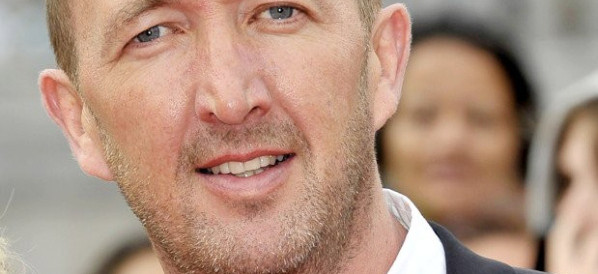 5 Terms
5 TermsHome > Terms > English (EN) > international aid
international aid
A helping hand for poor countries from rich countries. This, at least, is the intention. In practice, in many cases aid has done little good for its intended recipients (improved health care is a notable exception) and has sometimes made matters worse. Poor countries that receive lots of aid grow no faster, on average, than those that receive very little. By contrast, perhaps the most successful aid program ever – the Marshall plan for rebuilding Europe after the second world war – involved rich countries giving to other hitherto rich countries. During the second half of the 20th century rich countries gave over $1 trillion in aid to poor ones. During the 1990s, however, flows of official aid stagnated. In 2001, official aid was a little over $50 billion, roughly one quarter of the GDP of donor countries. On top of this were private-sector donations from NGOs (non-government organizations) worth an estimated $6 billion. Increasingly, such sums were exceeded by private foreign direct investment. In an attempt to reinvigorate international aid, in 2000 the UN committed itself to eight ambitious Millennium Development Goals for reducing global poverty by 2015. Why has aid achieved so little? Donations have often ended up in the offshore bank accounts of corrupt politicians and officials in poor countries. Money has often been given with strings attached, so that much of this “tied” aid is spent on com¬panies and corrupt politicians and officials in the donor country. War has ravaged many potentially beneficial aid projects. Moreover, some aid has been motivated by political goals – for example, shoring up anti-communist governments – rather than economic ones. The lesson of history is that aid will often be wasted unless it is carefully aimed at countries with a genuine commitment to sound economic management. Analysis by the World Bank sorted 56 aid-receiving countries by the quality of their economic management. Those with good policies (low inflation, a budget surplus and openness to trade) and good institutions (little corruption, strong rule of law, effective bureaucracy) benefited from the aid they received. Those with poor policies and institutions did not. This accounts for the growing popularity of conditionality in aid.
- Part of Speech: noun
- Synonym(s):
- Blossary:
- Industry/Domain: Economy
- Category: Economics
- Company: The Economist
- Product:
- Acronym-Abbreviation:
Other Languages:
Member comments
Terms in the News
Billy Morgan
Sports; Snowboarding
The British snowboarder Billy Morgan has landed the sport’s first ever 1800 quadruple cork. The rider, who represented Great Britain in the 2014 Winter Olympics in Sochi, was in Livigno, Italy, when he achieved the man-oeuvre. It involves flipping four times, while body also spins with five complete rotations on a sideways or downward-facing axis. The trick ...
Marzieh Afkham
Broadcasting & receiving; News
Marzieh Afkham, who is the country’s first foreign ministry spokeswoman, will head a mission in east Asia, the state news agency reported. It is not clear to which country she will be posted as her appointment has yet to be announced officially. Afkham will only be the second female ambassador Iran has had. Under the last shah’s rule, Mehrangiz Dolatshahi, a ...
Weekly Packet
Language; Online services; Slang; Internet
Weekly Packet or "Paquete Semanal" as it is known in Cuba is a term used by Cubans to describe the information that is gathered from the internet outside of Cuba and saved onto hard drives to be transported into Cuba itself. Weekly Packets are then sold to Cuban's without internet access, allowing them to obtain information just days - and sometimes hours - after it ...
Asian Infrastructure Investment Bank (AIIB)
Banking; Investment banking
The Asian Infrastructure Investment Bank (AIIB) is an international financial institution established to address the need in Asia for infrastructure development. According to the Asian Development Bank, Asia needs $800 billion each year for roads, ports, power plants or other infrastructure projects before 2020. Originally proposed by China in 2013, a signing ...
Spartan
Online services; Internet
Spartan is the codename given to the new Microsoft Windows 10 browser that will replace Microsoft Windows Internet Explorer. The new browser will be built from the ground up and disregard any code from the IE platform. It has a new rendering engine that is built to be compatible with how the web is written today. The name Spartan is named after the ...
Featured Terms
Ralph Ineson
Ralph Michael Ineson (born 15 December 1969) is an English actor. He played Chris Finch on the BBC television programmeme The Office. He has a strong ...
Contributor
Featured blossaries
James Kawasaki
0
Terms
1
Blossaries
8
Followers
Social Psychology PSY240 Exam 1
 5 Terms
5 TermsBrowers Terms By Category
- Digital Signal Processors (DSP)(1099)
- Test equipment(1007)
- Semiconductor quality(321)
- Silicon wafer(101)
- Components, parts & accessories(10)
- Process equipment(6)
Semiconductors(2548) Terms
- Authors(2488)
- Sportspeople(853)
- Politicians(816)
- Comedians(274)
- Personalities(267)
- Popes(204)
People(6223) Terms
- Conferences(3667)
- Event planning(177)
- Exhibition(1)
Convention(3845) Terms
- Fiction(910)
- General literature(746)
- Poetry(598)
- Chilldren's literature(212)
- Bestsellers(135)
- Novels(127)



